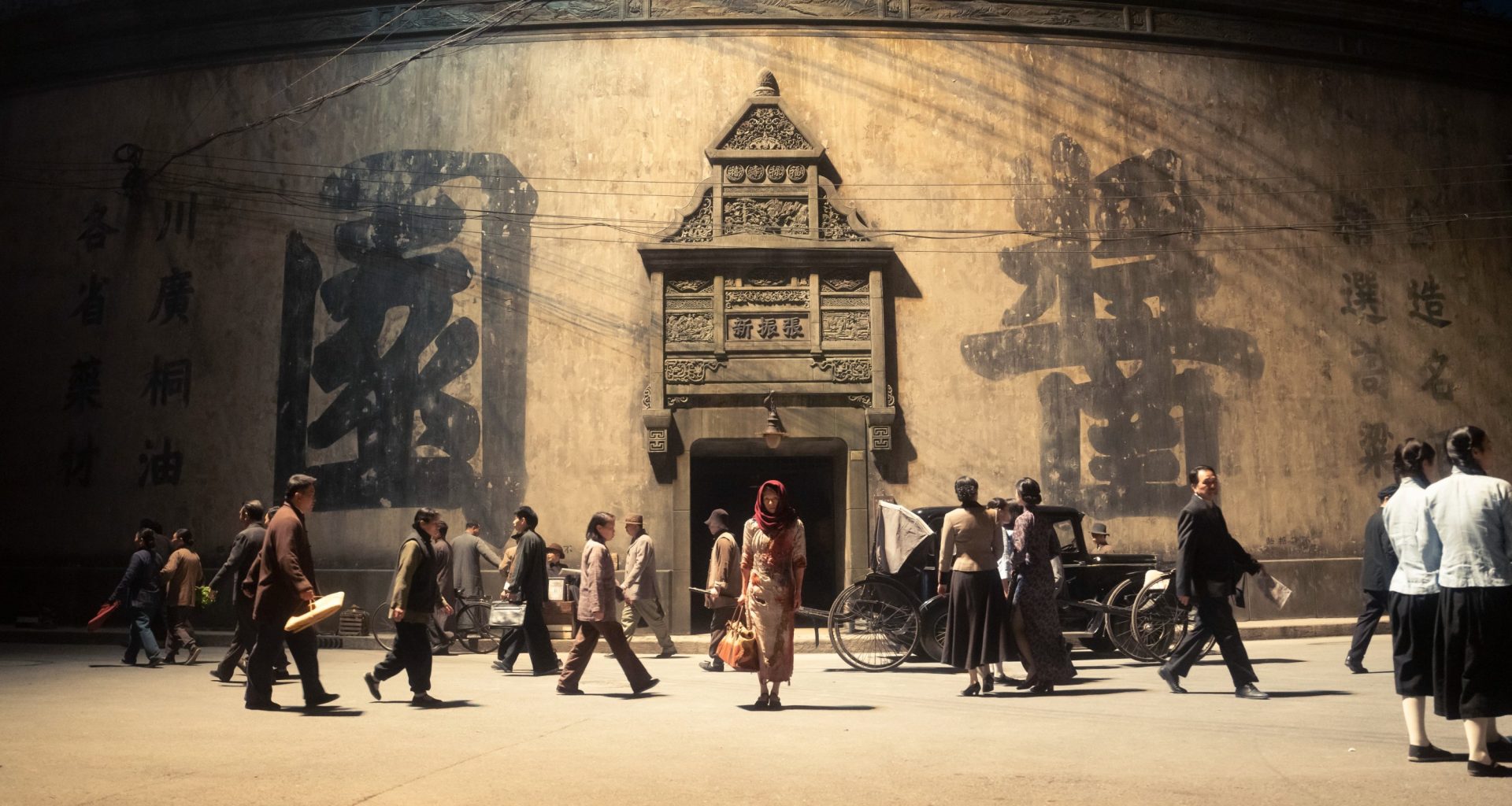By the time Chinese star Zhang Ziyi walked the Cannes Film Festival’s red carpet on the event’s penultimate night last Friday, it was already clear that Chinese cinema was back on the international stage in a major way. The world’s most glamorous movie event premiered five films from China across its official selection this year, ending a long period of relative obscurity that began with the pandemic. The two most prominent Chinese films to unfurl in Cannes this year — Jia Zhange’s acclaimed drama Caught By the Tides and Peter Chan’s commercial powerhouse She’s Got No Name, starring Zhang and a slew of big-name Chinese actors — were both backed by rising studio Huanxi Media.
Founded in 2015 by veteran producer Dong Ping (Crouching Tiger, Hidden Dragon) and former attorney Steven Xiang, Huanxi Media has climbed to the forefront of the Chinese industry thanks to a streak of savvy project selection and a business model built around exclusive relationships with some of the country’s most bankable directors. In 2023, Huanxi was responsible for China’s top-grossing movie of the year, Zhang Yimou’s period thriller Full River Red with $637.2 million (RMB4.54 billion).
The company hopes to repeat that feat with She’s Got No Name, which is expected in Chinese cinemas sometime in the second half of the year. Well received by critics in Cannes, the noirish drama is based on the true story of a 1940s Shanghai woman who was accused of brutally murdering her husband, later becoming a fork hero of a kind for the country’s emerging women’s rights movement. The film would appear well timed to current trends at the Chinese box office, where writer/director Jia Ling’s female empowerment drama YOLO is currently the biggest film this year with $479.4 million.
The Hollywood Reporter recently connected with Huanxi’s CEO Steve Xiang to discuss the company’s Cannes moment and what it might take for a contemporary Chinese movie to achieve significant commercial success on the world stage.
Congrats on having two films in the Cannes Film Festival this year. The last studio from Asia to achieve that was Korea’s CJ ENM — with Park Chan-wook’s Decision to Leave and Hirokazu Kore-eda’s Broker in 2022 — which is good company to keep. How do these two films fit into your 2024 slate?
Well, they both represent our mission to work with the very best directors in China. We made our Cannes debut with Jia Zhangke’s Ash Is Purest White in 2018 and we’re very proud to be returning with his new one, Caught by the Tides, which we co-produced. It’s an amazing film. But for Peter Chan’s She’s Got No Name, we are the lead producer, so perhaps I should talk a little more about that one. This film is a very important project for us for a number of reasons. For many moviegoers in China, it’s already one of the most anticipated movies of the year, and we hope to release it during a major moviegoing window. So it’s very important for us commercially. The second reason is artistic. We tried to set a very high standard for this film and we feel that it delivers. The cast is as A-list as it gets for China. It’s packed with stars, including Zhang Ziyi in a role that’s really transformative for her. The third reason is that we believe this is one of the very few recent Chinese films that will have global appeal. It tells a historical story that is well known in China, but it’s about a subject — domestic violence and women’s rights — that’s very relevant across the world today. We believe Peter and his whole team have told the story in a way that is gripping and accessible to viewers everywhere. We’re hopeful that it could be a breakthrough.
Female empowerment has proved to be a very popular and resonant theme in Chinese cinema lately. For example, Barbie defied expectations in China last year and Jia Ling’s YOLO is the biggest movie of 2024 so far. There have been several others. Do you have any thoughts on where this trend is coming from?
Well, like everywhere else, I think Chinese people’s awareness of issues relating to women’s rights and equal justice has been increasing. It’s a subject that our audience is immensely interested in. The details may be different compared to other places around the world; but the theme of women’s rights and the challenges they face because of their place in society and how they are treated — it’s all immensely resonant here, like everywhere else. This is why we are very hopeful that the film will connect both in China and overseas.
We also think the film will appeal because of its very high level of authenticity. During production, we were able to secure a whole block of historic row houses that were slated for demolition and redevelopment. The tenants had already been cleared out and we got permission to shoot freely there. This was a residential area right in the heart of Shanghai that hadn’t really changed in decades. It was almost like we were shooting in a museum of historical Shanghai. For the Chinese audience, this will be very nostalgic. For international viewers, I think the film has an authentic texture that they perhaps haven’t seen before.
When I talk to Chinese filmmakers and executives, they often mention how they hope their films will break through globally. Yet, when you look at the performance of virtually all commercially successful Chinese films, almost all of their revenue still comes from the home market. Why do you think that continues to be the case?
There are a few reasons. For one, over the last decade, the Chinese box office has grown so much that if you just capture the domestic market alone you’ll already have a very good return on your investment. In other words, we really haven’t needed to worry about the international market. That could change somewhat as our market matures, but it hasn’t really happened yet.
A more recent factor has been a growing divergence in audience preference. If you look at the Chinese market over the past few years, the audience has really lost interest in imported Hollywood films. Last year, the top 11 films at the box office were all Chinese movies. We can discuss the reasons for this divergence, but if you’re a Chinese producer looking at this trend, you naturally understand that your movies really need to cater to local culture and tastes to win over the audience — so you’re going to emphasize international appeal in your slate even less. Producers and investors don’t want to risk local market appeal by trying to introduce elements that might win over a global audience. It’s a much safer bet to simply focus on what you believe will work locally.
Deep down, I do believe we can make movies that will be successful in both the domestic Chinese and international markets — but you have to be very specific and deliberate about it. It really requires the right subject matter, the right director and the right stars. As a Chinese studio, you can’t attempt this with every film on your slate. Last year, our film Full River Red was a huge hit in China, but we didn’t have illusions about its international appeal. It’s a very Chinese film. With She’s Got No Name, I think we have a good chance of making a breakthrough. This one could thread the needle — but we will see.

Perhaps a project with the right cross-over thematics hasn’t been released yet, but the production values and storytelling sophistication of big-budget Chinese filmmaking have improved dramatically in recent years.
Yes, absolutely. The technology, the production values, the skill set and the talent base — Chinese moviemaking has been improving dramatically in all of these areas. All it will take is one great project that aggregates all those elements.
Huanxi’s strategy from the start has been two-pronged: Exclusive relationships with top Chinese directors to produce tentpole theatrical films and a curated streaming service offering exclusive, high-end content. The success of the theaterical piece has been apparent, but I think analysts and industry watchers have less insight into what’s been happening in China’s online video space — in part because the big U.S. platforms are not able to operate there. What can you tell us about how it’s going for Huanxi Premium and overall?
Well, we delayed some of our investments into our streaming service over the last few years due to COVID. But we are now reviewing our strategy and we’re in active discussions with potential partners about ways to accelerate the service’s development.
As for the landscape overall, there have been some changes. As in the U.S., the emphasis now for the biggest streaming players is on growing revenues and reducing losses. Chasing market share at whatever cost — that is over. Everyone is conscious of achieving breakeven. The second change is that short-form video has taken even more of the online audience’s time. People are not willing to watch mediocre long-form content anymore. They would rather spend that time watching short-form video on their phone. One thing that hasn’t changed is the competition for truly great content. The best content still has a lot of power. That’s why we remain very confident in our original thesis that there is a role to be played by a highly curated, vertically integrated streaming service with exclusive content. We believe we will continue to have a place in China’s streaming market.
Huanxi launched right after the boom in dealmaking between the U.S. and Chinese film industries — most of which didn’t end particularly well. Looking at your former career as an attorney and a dealmaker, I can’t help but wonder what types of transactions you might have pursued had you been active in this space during that period.
I also think about that sometimes. As you said, I’m a relative latecomer to the industry, but I probably wouldn’t have done many of those same deals that were done. A lot of the bigger deals that Chinese companies were involved in were slate financing deals with U.S. studios — and as you suggested, a lot of them did not yield the results the parties hoped for. As we were just discussing, the kinds of projects that can work in both markets these days are very specific — you need the right story, the right director and the right stars. That really goes against the slate financing approach, where you’re investing in a broad variety of projects and you have little creative involvement or control. The divergent preferences between the Chinese and international audiences suggest that this type of approach doesn’t make sense anymore. We believe there are still opportunities for collaboration, but it requires a much more targeted approach — and a multifaceted approach in how you tackle the various markets. In the past, the Chinese partner was always treated as a passive investor. People don’t talk about co-production or cross-border deals as much as they used to, but we’re still very interested in international collaboration. But we believe we’re a sophisticated partner with considerable capabilities to bring to bear. That’s a long way of saying that if we find the right project, with the right partner, we are absolutely interested in international collaboration.

Read More: World News | Entertainment News | Celeb News
Hollywood







